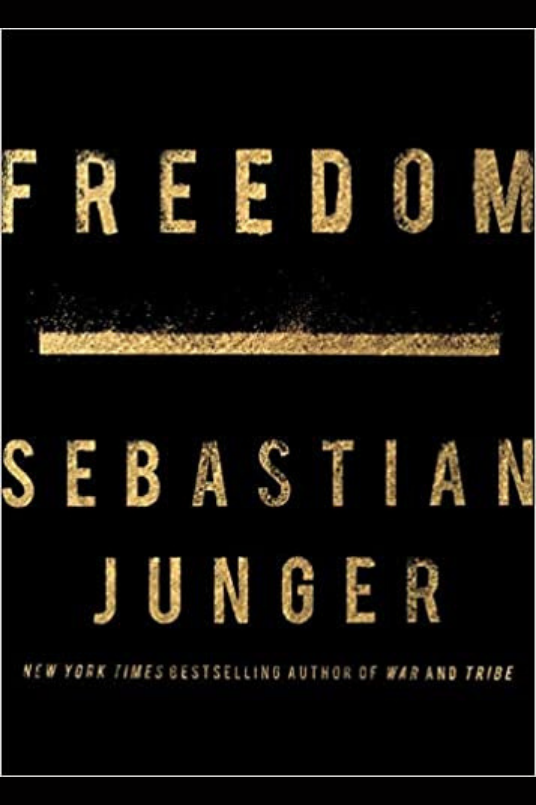Part history and part story. It will be difficult to put this book down.
If you’ve read anything from Junger, you know this book will deliver.
If Freedom is one of your top values, you must read this book.
Flow: 5/5
Actionability: 3/5
Mindset: 5/5
Some of My Highlights:
“We walked around four hundred miles and most nights we were the only people in the world who knew where we were. There are many definitions of freedom but surely that is one of them.”
“But the joke about freedom… is that you’re always trading obedience to one thing for obedience to another.”
“Soldiers, firefighters, and criminal gangs are notorious for the ordeals they put novices through in order to find out who they can count on. For those who pass the test, belonging to such a group can feel wildly liberating even though it must be one of the most oppressive forms of government ever devised.”
“…they [Seminole] are the only indigenous group to have never signed a legal agreement with the United States.”
“Some scholars, including Weatherford, believe that the Great Wall of China was built as much to keep their own people in as to keep the ‘barbarians’ out.”
“For most human history, freedom had to be at least suffered for, if not died for, and that raised its value to something almost sacred.”
“The idea that we can enjoy the benefits of society while owing nothing in return is literally infantile. Only children owe nothing.”
“It was the very poverty of the Apache – nothing to defend and almost nothing to carry – that made them hard to subdue, and therefore free.”
“They cut telegraphs wires between towns and spliced them back together with rawhide so the cuts would be hard to find.”
“A good leader was considered the tactical equivalent of twelve men, and his comrades showed him respect by now allowing him to do any camp work while on a raid. During peacetime, however, a war leader was an ordinary person with no special privileges.”
“Other primates can’t come close to matching human performance on the ground, and even horses, dogs, and wolves have trouble outrunning humans in steep terrain or hot weather.”
“Many animals sprint faster than humans, but few can compare across such a range of distances – especially in the heat.”
“From bench press to javelin to the discus to hammer throw, female athletes perform at roughly 50 to 70 percent of the level of male athletes.”
“The sexual division of labor is a human universal, and in every society, women perform the majority of childcare, and men perform the majority of group defense.”
“Young children fall asleep very quickly in the arms of someone who is walking, or anything – like a mechanic rocker – that mimics the human gait.”
“…but the Marines and elite athletes performed better. Their minds responded to the threatening stimuli by focusing even more intently on the task at hand. In societies like the Apache that expect almost everyone to rung or walk all day long, this elite response to stress might be so widespread as to be utterly unremarkable.”
“They fought to the death because the consequences of losing were beyond contemplating.”
“Freedom on the frontier was a kind of mirage, though: the closer you got, the more danger you were in and the more you needed your neighbors for survival, which just meant obeying their rules rather than the government’s.”
“There are disadvantages to moving three miles an hour in a world that’s mostly going seventy or eighty but there are also advantages.”
“Roughly 1,200 men died working on the Transcontinental Railroad, for example, though the exact number is not known because employers didn’t even bother keeping careful records.”
“Railroad towns and other male-dominated communities had morality rates that rivaled battlefields, and that did not change until women began to migrate westward and have children.”
“In the morning the river was at our toes and the island was gone. If we’d fone out there, we’d probably be dead.”
“The world freedom comes from freedom, which means ‘beloved’ in medieval German, and is thought to reflect the idea that only people in one’s immediate group were considered worthy of having rights or protection.”
